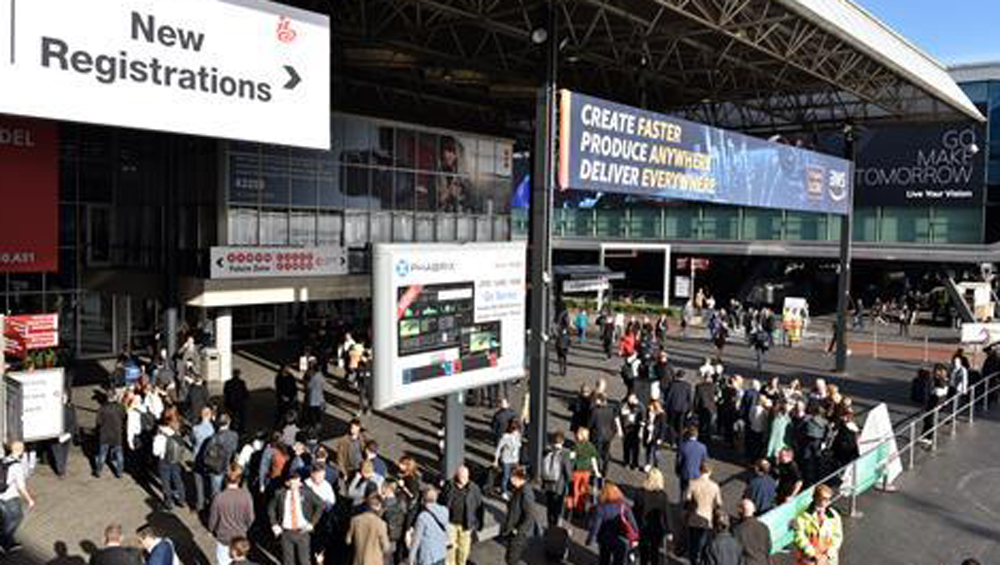
IBC 2021: A Bridge To Trade Shows’ Future

IBC is marching ahead with its annual exhibition and conference in Amsterdam early next month, despite the Dutch government’s announcement last week of heightened COVID-19 restrictions that will run through Friday, Dec. 3, the first day of the show. And the hybrid in-person/digital event, where for the first time all of the conference content is free to all registered attendees and also readily available online, could prove to be a litmus test for how big broadcast trade shows may look in the future.
In the near term, they will certainly look smaller. IBC 2021 is currently about 50% to 60% down in terms of attendees, exhibitors and total space compared to previous editions. At press time there are just over 30,000 registrants compared to 56,000 in 2019, around 700 exhibitors compared to the typical 1,500 to 1,700, and 200,000 to 250,000 net square feet of exhibit space sold compared to the usual 350,000 square feet.
 Registrations are picking up, said IBC CEO Michael Crimp yesterday, though not all of them represent actual in-person attendees. IBC surveys indicate that at least 10% of them will be digital-only. After running a digital-only IBC event in 2020, IBC is again offering a mix of live and on-demand content this year with the keynote sessions streamed live and all other conference sessions available on-demand four hours after their conclusion. The IBC Digital “platform” also includes AI-based recommendations on the most relevant sessions from the conference, where remote and cloud production and 5G broadcast applications are expected to be hot topics.
Registrations are picking up, said IBC CEO Michael Crimp yesterday, though not all of them represent actual in-person attendees. IBC surveys indicate that at least 10% of them will be digital-only. After running a digital-only IBC event in 2020, IBC is again offering a mix of live and on-demand content this year with the keynote sessions streamed live and all other conference sessions available on-demand four hours after their conclusion. The IBC Digital “platform” also includes AI-based recommendations on the most relevant sessions from the conference, where remote and cloud production and 5G broadcast applications are expected to be hot topics.
Crimp noted that trade shows were already moving away from being “huge product superstores” where engineers shopped for “magic black boxes” as today’s broadcasters shift to software applications running in the cloud. That technology trend has only accelerated with the COVID-19 pandemic and could mean the same kind of permanent change in exhibitions that has already occurred in some broadcast workflows. Vendors may no longer feel compelled to build “palaces” several times a year in order to show their wares.
“I think one of the lessons that will come out hopefully of IBC, is that I don’t think any trade show the size of IBC or NAB is going to return immediately to that size,” Crimp said. “It’s a bit of a journey. People need to think about what they want from a show, and maybe how they stage their investment.”
Last-Minute Impediments
That IBC 2021 is happening at all is still a victory for the concept of the traditional trade show, which was cast into doubt after the COVID-19 pandemic led to the cancellation of the 2020 NAB and IBC shows. That was followed by the last-minute scrapping of the 2021 NAB show, which had already been postponed from its traditional April timeframe to mid-October.
When NAB was canceled in September, less than a month before the show was slated to occur in Las Vegas, the trajectory for IBC was looking favorable as both the Dutch and U.S. governments eased restrictions on international travel and vaccinations across Europe continued to pick up. But the picture darkened on Nov. 2, when the Dutch government called for masks in stores and public places. It then dimmed dramatically last Friday, Nov. 12, when Dutch Prime Minister Mark Rutte announced a “partial lockdown” of three weeks in response to a rise of COVID-19 infections in the Netherlands.
The new restrictions call for non-essential stores and services to close at 6 p.m. and, more important, bars, restaurants and essential stores to close at 8 p.m. (along with the suggestion for people to work from home and limit social contact when possible). For an IBC crowd that is traditionally very social, with booth parties at the RAI convention center typically running from 6 p.m. to 8 p.m. each night and then group dinners in the city center occurring afterwards, that is a major policy change. And it is one that led IBC to release a statement last Friday that it was “assessing the impact and engaging with our stakeholders.”
New Rules And Hours
On Monday, the IBC Partnership Board consisting of the six industry organizations that run the show — SMPTE, IEEE Broadcast Technology Society, IET [Institution of Engineering and Technology], RTS [Royal Television Society], SCTE and the IABM — voted to go forward with the show citing support from big vendors like Blackmagic Design and Lawo. They also announced an adjustment in the show’s typical 9 a.m. to 6 p.m. exhibition hours, to address the new rules that call for the RAI’s exhibit floor to close at 6 p.m. each day.
On Friday, Dec. 3, the show will run from 9 a.m. to 4:30 p.m. GMT; on Dec. 4 and 5 it will open at 8:30 and close at 4:30; and on Dec. 6 it will again open at 8:30 but close at 4 p.m. Exhibitors can be on the floor from 8 a.m. to 6 p.m. each day and can still hold stand parties, but the events need to conclude by 5:30 to allow the floor to be cleared of attendees.
The earlier closing times will also allow attendees to head out early to local restaurants, which could be particularly important if the lockdown rules are extended beyond Dec. 3 through the weekend. Crimp noted that once attendees return to their hotels, they can certainly enjoy the facilities there. Within the RAI complex, The Beach, Grand Café and Traveller restaurants will also remain open until 8 p.m. each day.
Another big change that IBC has made in response to the new government regulations is that everyone at IBC will be required to be seated when eating or drinking. That has led show organizers to provide exhibitors with extra chairs along with high-top tables and stools to accommodate parties and press events.
Inside The Bubble
Everything else relating to COVID-19 precautions was already in place dating back to September, when exhibitions resumed at the RAI. IBC has built a “bubble” around the event with a physical fence surrounding its exhibition spaces. Each day, IBC attendees will be funneled into one of the RAI halls before entering the fence. While in the queue, they will need to maintain 1.5 meters of social distancing and show proof of COVID vaccination, recovery or recent testing and answer health screening questions before receiving a color-coded wristband that lets them enter the fence. That wristband will change color each day of the show.
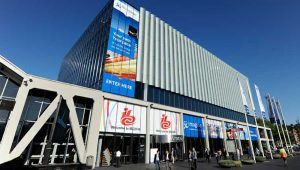 Once inside the IBC “fence,” attendees won’t have any masking or social distancing requirements though Crimp said there will be ample signage reminding attendees to respect each other’s personal decisions regarding masks and social distancing. In another nod to safety that was already planned long ago, IBC will be holding its prestigious annual IBC Innovation Awards as a virtual event next Tuesday, Nov. 22, with an onsite reception for winners and press during the show in December. The Innovation Awards usually has an in-person audience of some 2,000 people.
Once inside the IBC “fence,” attendees won’t have any masking or social distancing requirements though Crimp said there will be ample signage reminding attendees to respect each other’s personal decisions regarding masks and social distancing. In another nod to safety that was already planned long ago, IBC will be holding its prestigious annual IBC Innovation Awards as a virtual event next Tuesday, Nov. 22, with an onsite reception for winners and press during the show in December. The Innovation Awards usually has an in-person audience of some 2,000 people.
IBC won’t be the first big trade show to proceed during the partial lockdown. METS Amsterdam, the world’s biggest equipment trade show for the leisure marine industry, was held from Tuesday to Thursday of this week under the same safety protocols.
“The authorities in the Netherlands are happy that IBC can continue as a safe event,” Crimp said. “If they change that, then we would have to cancel. Currently, it’s a safe and protective environment.”
Vendor Plans Differ
But not all vendors are happy with the decision to go forward. Digital platform security provider Irdeto, which is based in the Netherlands, said yesterday that it was withdrawing from IBC. Irdeto cited “record levels” of COVID-19 infections and “increasing numbers of hospitalizations and deaths” in the Netherlands, along with the government’s recent change in safety protocols.
“Despite a strong desire to attend IBC 2021 and participate in the gathering of our industry after a challenging year and a half, the resurgence of the pandemic in the Netherlands has left us with no other option but to withdraw our participation,” said Irdeto CEO Doug Lowther. “We took this decision in the interests of the safety of our customers, partners, and employees given the ongoing challenges presented by the COVID-19 pandemic. Our company is appreciative of the work done to plan and host IBC 2021, and we look forward to returning to industry events once it’s safe to do so.”
Other exhibitors dropping out of IBC in recent days included French OTT and content-protection firm Viacess-Orca and German audio console supplier DHD.audio.
Another major vendor TVNewsCheck checked in with this morning, that had initially been planning to attend IBC, said that its plans were now up in the air. The company was consulting with customers and partners to figure out whether they are still planning to attend, and it pointed to discussions on social networks that indicate that both vendors and visitors are increasingly reluctant to make the trip to Amsterdam. The vendor still planned to take part in IBC Digital and also conduct customer meetings, though they might now take place online or by visiting the customers themselves.
24i, an OTT streaming vendor based in Amsterdam, is moving forward with exhibiting at IBC. 24i CMO Madelon Olsthoorn said the choice was easier for 24i because the company has about 50 people locally who can work the show. She didn’t envy the decision that IBC faced.
“Within the boundaries of what’s allowed, I can understand that they are willing to give it a last go,” Olsthoorn said. “I don’t know if that is going to last, of course, to the very end because now you’re getting the dropouts. I don’t know if we are going to see a repetition of NAB in that case. But I can see from their perspective, and with RAI saying that they can hold the show, they are trying to make a bubble and trying to make it work.”
Olsthoorn said that Dutch citizens have been very good about complying with the government’s COVID-19 rules on wearing masks and the like. She also said that the Dutch government generally hasn’t reversed course once it has indicated a time period for a certain level of protocols. But she also held out the possibility that the Dutch government could further tighten restrictions come Dec. 4, the second day of the show.
At this point, Olsthoorn said, vendors weren’t offered the option to pass on exhibiting this year and instead take a credit toward their IBC 2022 booth. She said that 24i customers who are coming are generally those within 1,000 km (622 miles), and many are planning to drive instead of flying.
Olsthoorn isn’t expecting a big turnout. Given the IBC’s current registration numbers and the small number of meetings 24i has booked, she is forecasting a rather small show with perhaps 5,000 to 7,000 actual in-person attendees. That would still be enough for her sales team to consider it worthwhile, alongside the online marketing they are already doing.
“It’s the combination that has gotten so important, one cannot go without the other,” Olsthoorn said. “But I also would not want to rule out physical events. Especially larger customers, they really feel it’s important that we meet them. Prospects as well — they want to see who they’re buying from.”
U.S. Broadcasters Going
Typically, about 70% of IBC’s attendance has come from Europe and 30% from the rest of the world, with many senior executives from major U.S. networks making the trip. To that point, Mike Davies, SVP field operations for Fox Sports, and Vincent Tauzia, VP of partnerships for streaming giant Netflix, will both be giving keynote addresses at the show.
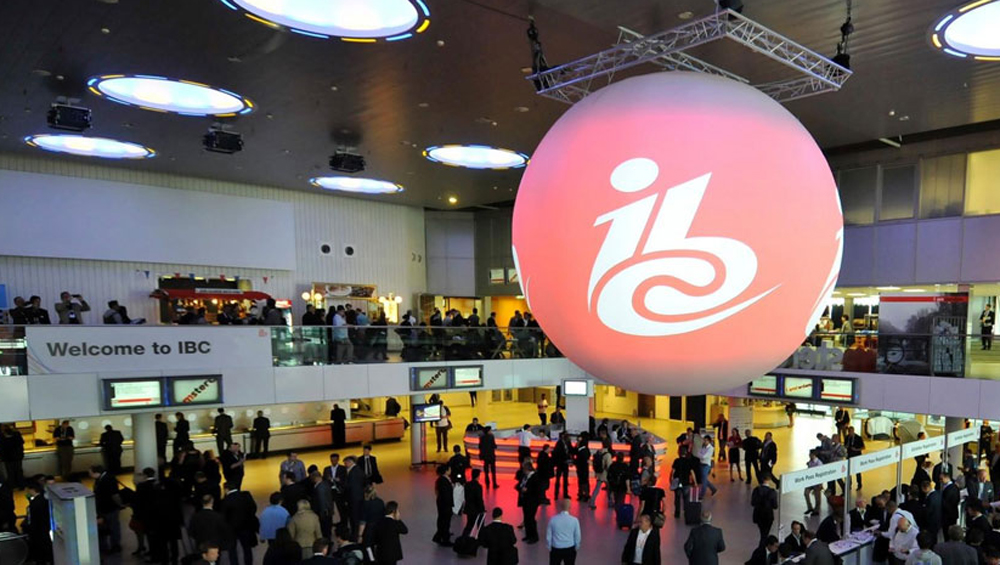 Mike Kralec, VP, technical operations and deputy CTO for Sinclair Broadcast Group, was still planning to attend IBC, as he and a few other senior Sinclair executives have done in the past. Kralec said he was looking to find some new players in public cloud technology.
Mike Kralec, VP, technical operations and deputy CTO for Sinclair Broadcast Group, was still planning to attend IBC, as he and a few other senior Sinclair executives have done in the past. Kralec said he was looking to find some new players in public cloud technology.
“There’s a lot of transformation in process at many places, it’s not just Sinclair, and we still need to keep having conversations with companies that can help us enable that operational transformation,” Kralec said. “There’s a lot of discussion to be had. It’s an opportunity for us to get face to face.”
Kralec is used to getting requests to discuss new or updated technology that he doesn’t always have time to respond to. Shows like IBC and NAB give him a chance to see a lot of product and talk to a lot of people in a short period of time, he said, and “much of the time I can filter through many of the other requests.”
He said that he had fielded a lot of inquiries from vendors about whether he was attending IBC, but that he didn’t have many official meetings booked. Those vendors were generally ones that Sinclair was already using or at least familiar with, and Kralec is heading to Amsterdam to find companies he doesn’t know about yet — preferably ones that not only know cloud but also know how to deliver value from broadcast, sports and live production in the cloud.
He wasn’t expecting attendance to be that robust. “I’m sure it’s going to be a small show,” he said. “The opportunity is really in the meetings and conversations and getting some fresh ideas.”






















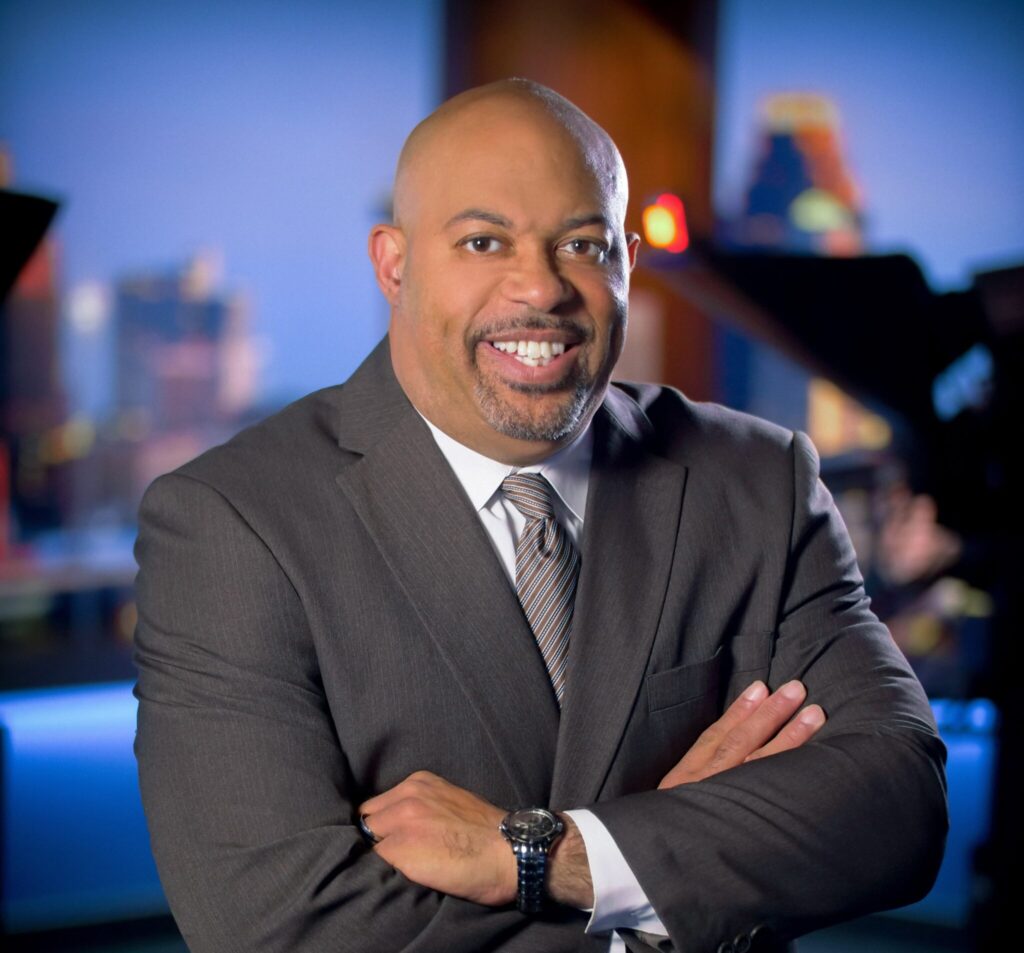
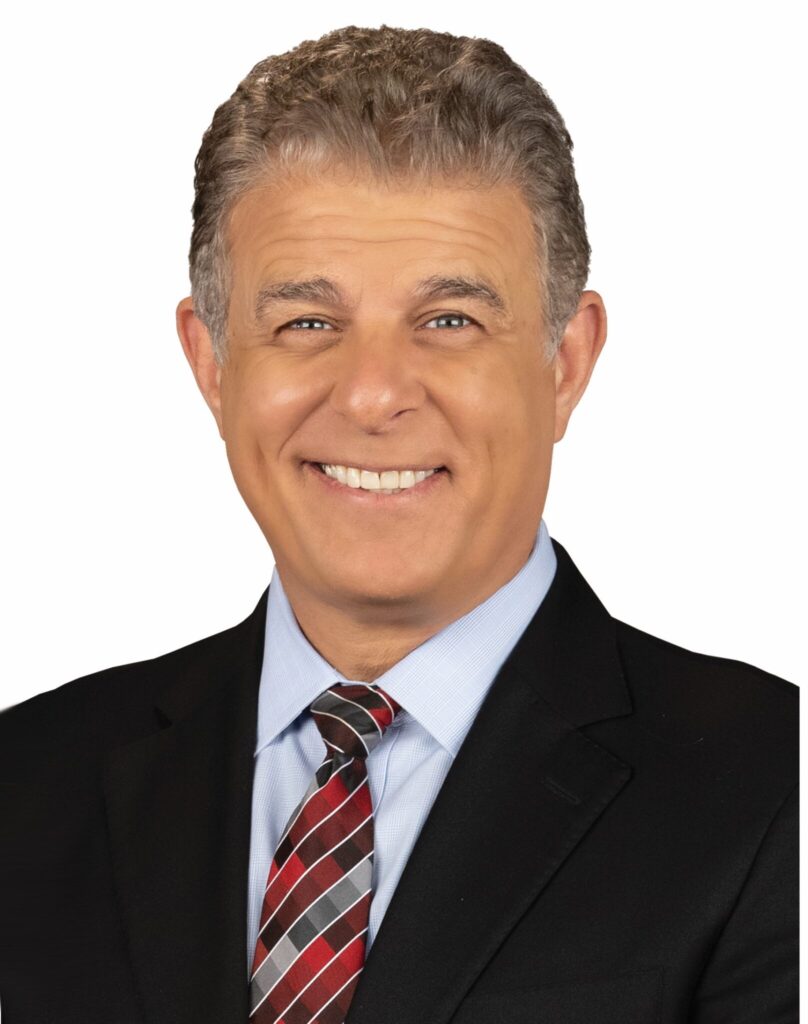
Comments (0)